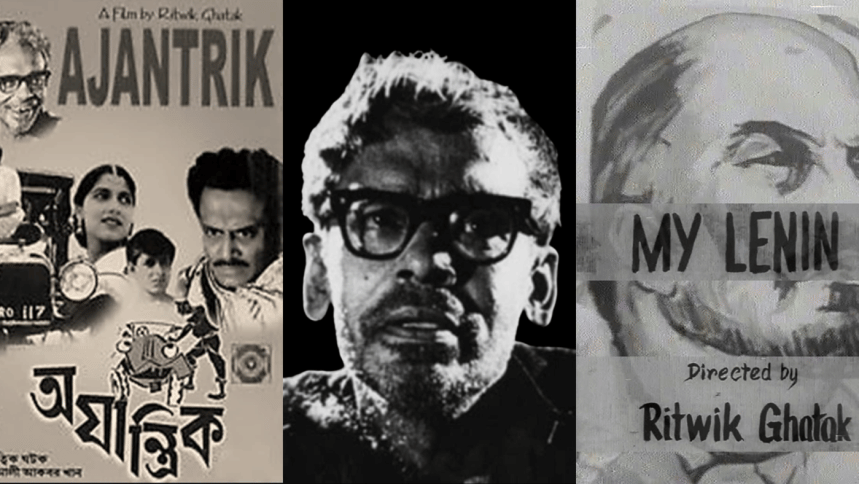Remembering Ritwik Ghatak: Indian cinema’s undiscovered maverick

Ritwik Ghatak, who was born in Dhaka on November 4, 1925, began his career as a writer at a very young age. Following the Partition in 1947, Ritwik experienced a lot of restlessness and rootlessness. This troubled him greatly, with him once remarking, "My biggest obstacle is that my feet are not on my own soil. How and where shall I find my own home soil?"
A brilliant artiste and devout Marxist, Ritwik Ghatak passed away on February 6, 1976, in Calcutta at the age of 51.

If Satyajit Ray was the poster-boy for Indian cinema—unthreatening, career-oriented and reliably tasteful—Ritwik Ghatak, his contemporary and principal rival, was its problem child. Ray's films are cohesive and exquisitely rendered with traditional narratives that aspire for the kind of psychological insights cherished by 19th-century authors. On the other hand, Ghatak's films were ragged, provisional and very personal—usually epic in structure, scale, and aspirations.
Ghatak was a notoriously destructive alcoholic, spending his entire filmmaking career in the shadow of Ray. While Ray essentially had the international market to himself for Indian cinema, Ghatak battled a variety of political and psychological demons, while trying to finance and finish his few films. While he never succeeded in creating a hit, his bittersweet comedy "Ajantrik" (1958) had a modest level of success with Bengali audiences.

Throughout his career, Ghatak declined to work the festival circuit or use his tremendous charm with foreign distributors. Instead, he abandoned significant projects and exchanged film rights for alcohol bottles, essentially destroying his life and career.
He was rather opinionated when it came to films, and the motivation behind creating them. "Joining films has nothing to do with making money," explained Ghatak. "Rather, it is out of volition to express my pain and agony. I do not believe in 'entertainment' or 'slogan-mongering.' I believe in thinking deeply about the universe, the world at large, the international situation, my country, and finally, my own people. I make films for them. Watching films is a kind of ritual. When the lights go out, the screen takes over and then the audience increasingly becomes one. It is a community feeling. One can compare it with going to a church, or a mosque, or a temple."

The chanting of the Vedas and the Upanishads in Ritwik's films served as a demonstration of his faith in tradition. He usually chose a child, a lunatic, or an alcoholic to chant them because, "One can say volumes through that which people apparently neglect, but cannot escape". At this moment, he might have been summarizing his own life. Ghatak had a touch of insanity in him, yearning for stability and tranquillity in the asylum—where he was a patient of schizophrenia.
The history of Indian cinema would probably have been quite different if his first feature film, "Nagarik" (1952–1953), had been released immediately after it was made. In 1955, Ray's "Pather Panchali" came and made history, but Ritwik was unable to release "Nagarik" for the rest of his life. It wasn't until 1982, 30 years after it was made, that the movie would be available for an Indian audience.
Some claim that Ghatak passed away as a result of his repeated inability to deal with the trauma of the Partition. Others say, he died from the anger of not being able to expose the people to his kind of cinema.
In 1976, he passed away after suffering from alcoholism and schizophrenia for many. His early years were filled with the abundance of nature and were surrounded by raging rivers in East Bengal. His life was plagued by these recollections, which were made much more painful by the heart-breaking anguish of the Partition.

 For all latest news, follow The Daily Star's Google News channel.
For all latest news, follow The Daily Star's Google News channel. 



Comments